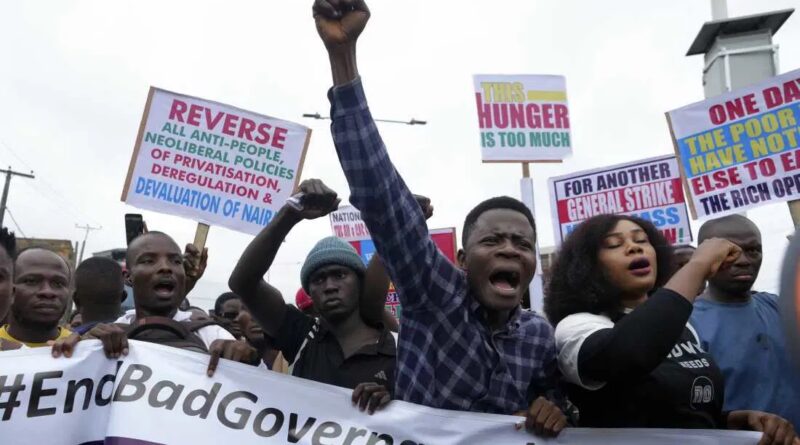Turning Tragedy into Change: Addressing Hunger and Anger in the Wake of Protests
My heart aches for the families of those who tragically lost their lives in the ongoing protest by the masses. Let us all work together to ensure that such a devastating event, which was entirely preventable, never occurs again in our beloved country. I urge our leaders and protest organizers to take immediate and proactive measures and learn from past mistakes to avoid similar events in the future. Let’s turn this tragedy into a source of inspiration for a better future.
Abraham Maslow’s hierarchy of needs unequivocally lists physiological needs, which include food, shelter, and clothing, as the first line of needs if we must survive to pursue other needs. When one is deprived of food, the person becomes angry and frustrated and could be forced into crime or violent behaviors. Besides, a hungry nation cannot reach its potential because one needs nutrients from food to develop the brain, think, act right, and acquire the power to engage in rewarding economic activities. For these reasons, nations strive to work hard to feed their population. Anything short of that is a disaster waiting to happen.
It is often said that a hungry person is angry, and once people get propelled by the anger from hunger, anything goes. However, we must always strive not to sin when angry. In this ongoing protest, we witnessed the unjust destruction of the properties of struggling traders who had no part in the country’s governance. Some individuals, claiming hunger led them to the protest front, chose to loot luxury goods items instead of food. They even went into a library and looted it, leaving the books untouched.
Some people who said they had not eaten for days went to mattresses and cushion chairs from struggling traders. Yet, in all this chaos, none of those who led Nigeria to this bus stop of infamy, a point of disgrace and dishonor, lost a pin. So, it is like the poor fighting the poor, a situation where those who are economically disadvantaged are pitted against each other in a struggle for survival.
I also appealed to the cronies of governments at all levels to desist from promoting anti-protest gangs, which are groups of individuals who are against the protest and often resort to violence, so as not to escalate the tension as it happened during the #EndSars. These groups, often sponsored by political entities, aim to disrupt peaceful protests and incite violence, thereby undermining the legitimate grievances of the protesters. They did not listen. We even saw a case of a sponsored anti-protester protesting the mandate of his sponsors. That action let the cat out of the bag.
Irrespective of what has happened, it is instructive to note that nothing happened in the ongoing protest in Nigeria that had not happened elsewhere before. Even advanced democracies have not found the recipe to prevent looting and arson in many demonstrations. This is a global issue that requires a coordinated global response.
Given the above, we must have learned from our experiences. It is only when we have personally faced a situation that has left its mark can we genuinely comprehend its significance and potentially prevent it from recurring. Our knowledge and understanding of these past events will empower us to avoid similar tragedies in the future.
I am sure leaders also know that when one is hungry, any little provocation will become a motivation to join the struggle on the streets. This is not likely to result in a revolution, but what has happened is the tip of the iceberg and signs of what may happen if we do not stem the tide of hunger and poverty.
Grace and peace!!!




